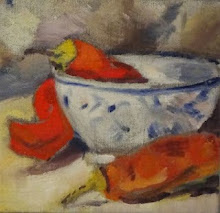Here are a few words about the Vocare School. It began in the fall of 2013. The School was created in response to recurring conversations with folks who spoke of finding themselves at points in their lives where they wondered: “Am I in the best place for me at this phase of my life? Is this all there is? What else could God have in store for me?”
These are excellent questions. Questions which can be challenging to tackle. It takes time, energy, space, and the Holy Spirit to answer questions of this sort. Richmond Hill had space and we made room on our calendar. Folks committed their energy. And the Holy Spirit showed up. Through a process of deep listening patterned on a Quaker clearness circle, doors opened (or closed), and folk found their respective way.
When we came to the end of the program, of course we experienced sadness, grief and loss. The bonds formed during the experience are strong and deep. Walking away is difficult. But walk away we must, as we engage in our own work and pursue our own path.
 As we navigate the journey, it’s good to pay particular attention to the spiritual geography surrounding us. In finding one’s way to an unconditional “yes” in life, you can look to the points of the compass.
As we navigate the journey, it’s good to pay particular attention to the spiritual geography surrounding us. In finding one’s way to an unconditional “yes” in life, you can look to the points of the compass.EAST: The direction of the rising sun (beginnings): What new energy/movement is starting to emerge in you? Are you aware of issues/areas in need of healing or change? SOUTH: The direction of the sunny exposure (imagination, spontaneity): Where is your energy being called forth? How do you nurture yourself? WEST: The direction of the setting sun (endings, letting go): What or who needs to be released or shed? What maps no longer work for your life? NORTH: Your guiding light (spiritual values, stabilizing force, mentors): What images of God nurture and sustain you? Who are your spiritual guides and dearest friends?
Anyone can steer the ship. Who’s charting the course? That’s the big question.
Richard Rumble
June 2016
